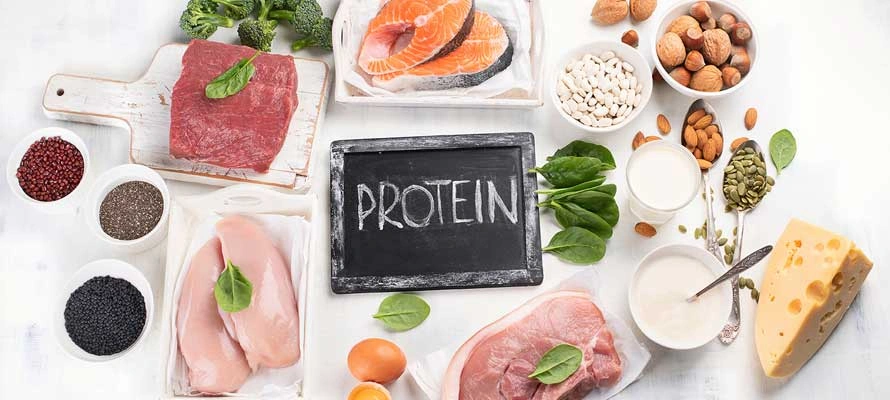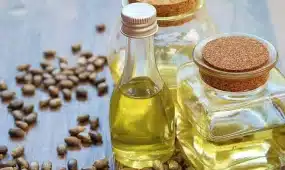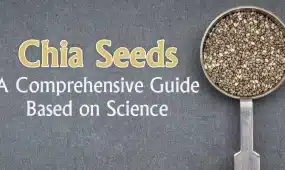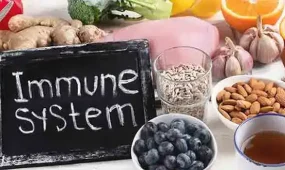Protein has been a hot topic for a while now! The advice to consume diets high in protein by certain health professionals, media outlets and popular diet books is given despite a lack of scientific data on the safety of increasing protein consumption or advice given based on one study.
There is not a one size fits all approach when recommending dietary advice. However, there is a formula health professionals use to recommend a safe intake of protein for individuals considered to be “healthy.”
A safe amount of protein along with other essential nutrients can power you through your day!
What is protein and why do we need it?
Many of us have heard about adopting a high protein diet to increase weight loss potential and/or to build muscle mass.
There has been extensive debates and studies on the validity of increasing protein intake and the possible impact these high protein diets have on the body and your health in general.
Protein is an essential macronutrient our body needs in order to maintain bodily functions. We need protein to fulfill necessary functions, building, maintaining and repairing bodily tissues[1].
How much protein do You need?
For example:
For a 160 pound healthy individual, they should be consuming about 58 grams of protein each day. However, this could vary based on activity level.
- 160lbs/2.2 = 72.7kg body weight
- 72.7 x 0.8 = 58 grams of protein per day
For a 200 pound healthy individual, they should be consuming about 72.8 grams of protein each day. However, this could vary based on activity level.
- 200/2.2 = 91kg body weight
- 91kg x 0.8 = 72.8 grams of protein per day
Could Plant-Based Diets Be Our Future?
Plant-based protein is derived from plant-based sources, such as beans, broccoli, quinoa, oats, or dairy products. Today there is a growing concern about the rising cost of healthcare nationwide, even as unhealthy lifestyles are contributing to the spread of obesity, diabetes, and cardiovascular disease.
Plant-based diets could be our future! They are cost-effective and low-risk and have been shown to lower body mass index (BMI), blood pressure, A1C, and cholesterol levels.
In an article called, Nutritional Update for Physicians: Plant-Based Diets, says, physicians should consider recommending a plant-based diet to all of their patients, especially those with high blood pressure, diabetes, cardiovascular disease or obesity[3].
When it comes to getting enough protein from a plant-based diet, people who are switching to this diet are usually concerned about getting enough protein.
Well, guess what?
You can get the protein you need and more! You just need to understand what plant-based options are available and what would be best for you.
You will also need to know the amount of protein that is readily available to have an adequate amount of protein.
Have you Heard of Protein “Packaging?”
We need to look at the overall picture of what we are consuming alongside our protein sources, whether that be from plant-based or animal sources.
For example, different types of fats, fiber, sodium, and carbohydrates in conjunction with the protein source will make a difference in the nutritional profile and how you feel throughout the day. It’s important to feel satiated and full of energy to power you through our daily activities.
According to Frank Hu, professor of nutrition and epidemiology at the Harvard School of Public Health, the “packaging” of protein matters. Protein “packaging” will be crucial if you want to reap the benefits of other nutrients along with the protein source you are consuming.[5]
You are probably wondering why…
Below you will see some foods that are “packaged” by protein content alongside a range of nutrients that come with it.
- A 4-ounce broiled sirloin steak — about 33 grams of protein. But it also delivers about 5 grams of saturated fat. Many steaks people buy or are served at restaurants can be upwards to 16oz for one serving! That is 132 grams of protein and almost 20 grams of saturated fat.
- A 4-ounce ham steak with 22 grams of protein has only 1.6 grams of saturated fat, but it’s loaded with 1,500 milligrams worth of sodium.
- 4 ounces of grilled sockeye salmon has about 30 grams of protein and naturally low in sodium. Salmon and other fatty fish are also excellent sources of omega-3-fats, a type of fat that’s especially good for the heart and for brain function.
- A cup of cooked lentils provides about 18 grams of protein and 15 grams of fiber, and it has virtually no saturated fat or sodium.
So, if you are wondering if you should be choosing between steak, salmon, or beans – well that will depend on what your overall goals are. If you have high cholesterol, you will be better off choosing the salmon or the beans option.
However, if you are a type 2 diabetic and you are worried about carbohydrate intake, the steak could be a better option. It is still important to understand the amount of saturated fat that is in the steak.
What are the Sources of Protein?
Here is an excellent list of protein choices that are suitable for a variety of dietary plans.
It’s important to have a variety of protein sources in your diet to reap the benefits of other nutrients.
- Eggs
- Leaner cuts of beef
- Chicken breasts
- Turkey breasts
- Beans, such as garbanzo beans or black beans
- Shrimp
- Nuts and seeds, such as pumpkin seeds, peanuts, and almonds
- Fish, including salmon, flounder, and haddock
- Sprouted grain bread, such as Ezekiel bread
- Whey or plant protein shakes
- Lentils
- Quinoa
- Chickpeas
- Oats
- Dairy products, such as Greek yogurt, cow’s milk, or cheese
- Vegetables, including Brussels sprouts and broccoli
The Takeaway Message
Once we understand how protein can affect our body, we can start to understand in what quantities we need protein.
Adopting a plant-based diet could be the future as physicians start to prescribe a plant-based diet to decrease the risk of chronic disease and for those already diagnosed.
How we “package” protein can influence the nutritional profile of certain types of protein. What matters is that we understand our body and that we make appropriate decisions on what type of protein we should be consuming and how much.
SOURCES
Health Insiders relies on peer-reviewed studies, academic research institutions, and medical associations. We avoid using tertiary references. You can learn more about how we ensure our content is accurate and current by reading our editorial policy
[1] What are Proteins and What do they do? National Library of Medicine of Issues of Dietary Protein https://medlineplus.gov/dietaryproteins.html
[2] S. Bilsborogh, N Mann. A Review of Issues of Dietary Protein Intake in Humans. International Journal of Sports Nutrition and Exercise Metabolism. https://doi.org/10.1123/ijsnem.16.2.129
[3] Tuso PJ, Ismail MH, Ha BP, Bartolotto C. Nutritional update for physicians: plant-based diets. Perm J. 2013 Spring;17(2):61-6. doi: 10.7812/TPP/12-085. PMID: 23704846; PMCID: PMC3662288
[4] About Chronic Diseases https://www.cdc.gov/chronic-disease/about/index.html
[5] Protein: The Packaging Matters. Harvard School of Public Health. https://www.hsph.harvard.edu/news/hsph-in-the-news/protein-the-package-matters/







 This article changed my life!
This article changed my life! This article was informative.
This article was informative. I have a medical question.
I have a medical question. Ask a Question
Ask a Question
 This article contains incorrect information.
This article contains incorrect information. This article doesn’t have the information I’m looking for.
This article doesn’t have the information I’m looking for.